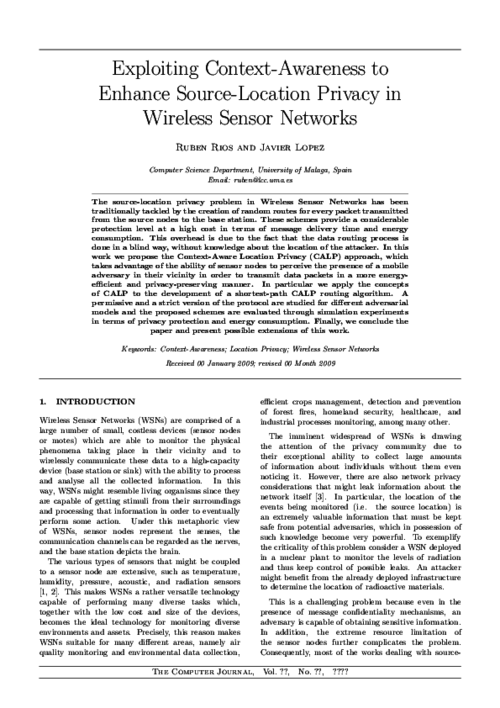 ] Type Year
] Type Year The Computer Journal, vol. 54, Oxford University Press, pp. 1603-1615, Sept 2011. DOI
Abstract
The source-location privacy problem in Wireless Sensor Networks has been traditionally tackled by the creation of random routes for every packet transmitted from the source nodes to the base station. These schemes provide a considerable protection level at a high cost in terms of message delivery time and energy consumption. This overhead is due to the fact that the data routing process is done in a blind way, without knowledge about the location of the attacker. In this work we propose the Context-Aware Location Privacy (CALP) approach, which takes advantage of the ability of sensor nodes to perceive the presence of a mobile adversary in their vicinity in order to transmit data packets in a more energy-efficient and privacy-preserving manner. In particular, we apply the concepts of CALP to the development of a shortest-path CALP routing algorithm. A permissive and a strict version of the protocol are studied for different adversarial models and the proposed schemes are evaluated through simulation experiments in terms of privacy protection and energy consumption. Finally, we present the conclusions of the paper as well as possible extensions of this work.
